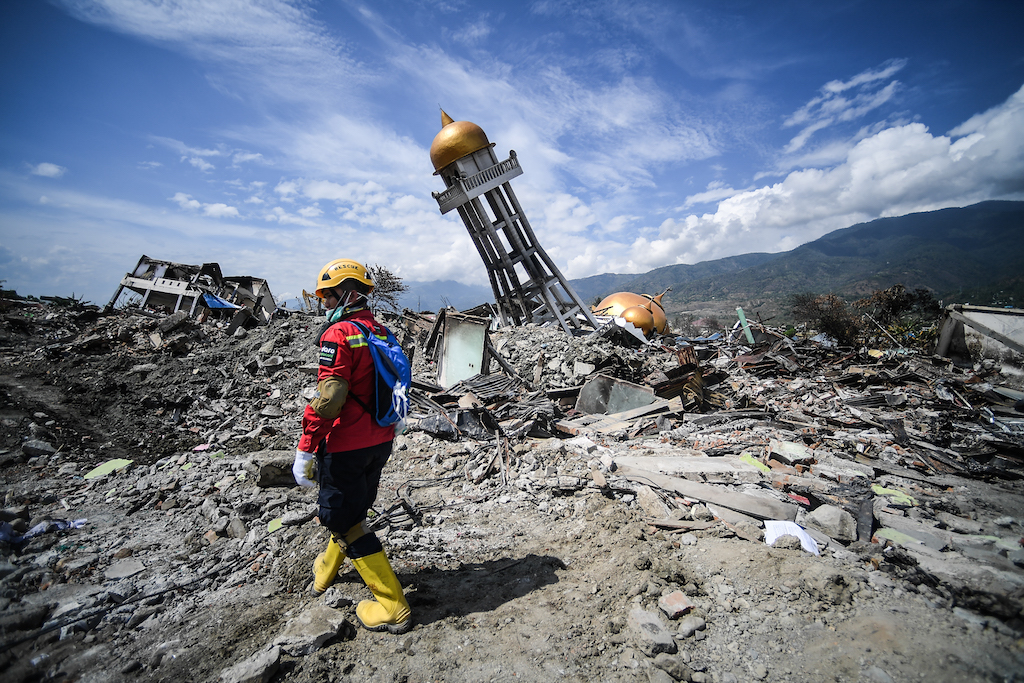Rescuers picking through the grim aftermath of Indonesia’s quake-tsunami issued a fresh public health warning on Saturday as more decaying corpses were unearthed from beneath the ruined city of Palu.
Officials said on Saturday the death toll had climbed to 1,649 with more than a thousand maybe still missing in the seaside city on Sulawesi island, after the region was hit by a powerful quake and a wall of water.
Hopes of finding anyone alive a full eight days since the disaster have all but faded, though the search has not been officially called off.
There are fears that vast numbers of decomposing bodies could still be buried beneath Petobo and Balaroa — two areas virtually wiped off the map.
“Most of the bodies we have found are not intact, and that poses a danger for the rescuers. We have to be very careful to avoid contamination,” Yusuf Latif, a spokesman for Indonesia’s search and rescue effort, told AFP from Palu.
“We have vaccinated our teams, but we need to be extra cautious.”
Security minister Wiranto, who like many Indonesians goes by one name, said eventually the worst-hit areas would have to be declared mass graves and left untouched.
“We have to make a decision as to when the search for the dead will end. Then, we later must decide when the area will be designated a mass grave,” he told reporters late Friday.
Thousands of survivors continued to stream out of Palu to nearby cities in the aftermath of the disaster.
Hospitals remain overstretched and short on staff and supplies.
Survivors have ransacked shops and supply trucks in the hunt for basic necessities, prompting security forces to round up dozens of suspected looters and warn that they will open fire on thieves.
After days of delays, international aid is slowly making its way to the disaster zone, where the UN says almost 200,000 people need humanitarian assistance.
Getting vital supplies to the affected areas has proved hugely challenging, with the number of flights able to land at Palu’s small airport still limited, leaving aid workers facing gruelling overland journeys.
[Source: ENCA]





 WhatsApp us
WhatsApp us 

